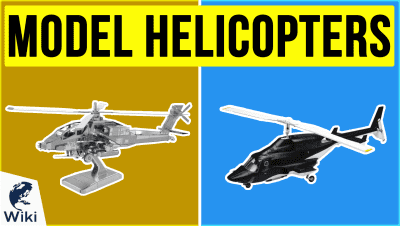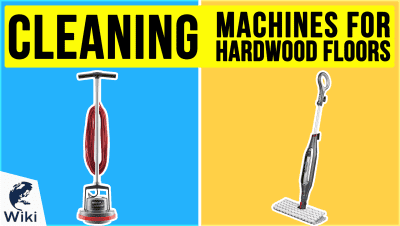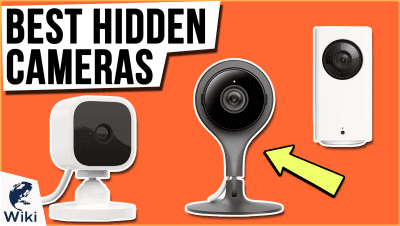6 Institutions That Treat & Study Mental Health
Mental Illness is a serious public health concern, but for too long, shame and stigma related to mental health treatment have kept people from seeking help or talking about their struggles. These organizations work to connect doctors, patients, and advocates throughout the country to ensure that those who are suffering can get the help they need, information is shared, and that dedicated research is done to combat this epidemic. This video was made with Ezvid Wikimaker.
6 Vital Mental Health Organizations
| Name | Location |
|---|---|
| National Alliance on Mental Illness | Arlington, VA |
| Hope for Depression Research Foundation | New York, NY & West Palm Beach, FL |
| Child Mind Institute | New York, NY & San Mateo, CA |
| Anxiety and Depression Association of America | Silver Spring, MD |
| GoodTherapy | Olympia, WA |
| NAADAC | Alexandria, VA |
Tackling Mental Health Stigma with NAMI
U.S. Mental Health Facts
- 1 in 5 U.S. adults experiences mental illness each year
- 50% of all lifetime mental illness begins by age 14, and 75% by age 24
- Suicide is the 2nd leading cause of death among people aged 10-34
- The average delay between onset of mental illness symptoms and treatment is 11 years
- People with depression have a 40% higher risk of developing cardiovascular and metabolic diseases than the general population
- 19.3% of U.S. adults with mental illness also experienced a substance use disorder in 2018
- The rate of unemployment is higher among U.S. adults who have mental illness (5.8%) compared to those who do not (3.6%)
- 41% of the people with mental disorders receive professional health care or other services
- Mental illness is associated with lower use of medical care, reduced adherence to treatment therapies for chronic diseases and higher risks of adverse health outcomes
- Up to 25% of primary care patients suffer from depression, but primary care doctors identify only 31% of these patients
- 4% of young adults reported forgoing mental health care in the past year, despite self-reported mental health needs
- Major depressive disorder is the leading cause of disability in the U.S. for ages 15-44
- Women are nearly twice as likely to suffer from major depression than men
- Four times as many men than women commit suicide
- Suicidal ideation among adults increased from 3.77% in 2012 to 4.19% in 2017
- The proportion of youth with private insurance that did not cover mental or emotional difficulties went from 4.6% in 2012 to 8.1% in 2017
- 8.4% of children aged 6 to 17 have been diagnosed with anxiety and/or depression
Does Using Social Media Make More Kids Depressed?
Empathetic Books About Mental Health Issues
In Depth
With diagnoses of depression, anxiety, and other related disorders on the rise, a wide variety of medical professionals and organizations has stepped up to promote the overall wellbeing of the mind. From providing information about treatment options to funding research, these groups work to improve the quality of life for the millions of Americans battling these issues annually. If you are interested in learning more about their work, then here are, in no particular order, six vital institutions that treat and study mental health.
At #1 is the National Alliance on Mental Illness, which was founded around a kitchen table in 1979. As the country's largest grassroots mental health organization, NAMI boasts over 500 local affiliates that together work to improve the lives of Americans who are impacted by disorders of the mind. With one in every twenty-five adults in the United States living with a serious mental health condition, NAMI offers a variety of services, including a helpline that is open five days a week.
NAMI's multipronged approach involves running peer-led educational programs, shaping national public policy, and hosting a range of public awareness events and activities, like Mental Illness Awareness Week and NAMIWalks. The organization frequently works with reporters as well to ensure accurate representation in the media. If you are interested in supporting NAMI and its mission, consider taking part in one of its walks for mental health, sharing your story through one of its moderated spaces, or creating your own fundraiser to benefit the group.
If you are interested in supporting NAMI and its mission, consider taking part in one of its walks for mental health, sharing your story through one of its moderated spaces, or creating your own fundraiser to benefit the group.
In the #2 spot is Hope for Depression Research Foundation, which aims to heal minds by funding the best minds. HDRF, founded in 2006 by Audrey Gruss, has at its core the Depression Task Force, a collaboration of seven leading scientists across North America who have shared their advanced knowledge to create a research plan to combat the illness. The team makes use of a centralized data bank to facilitate its research efforts. With the illness affecting over eighteen million people in the United States each year, it strives to fund research into the origins, diagnosis, treatment, and prevention of depression and its related mood and emotional disorders.
Unlike many other organizations, HDRF contributes every dollar it raises directly to its research efforts, as its administrative costs are covered by a private foundation. HDRF also has worked with celebrity ambassadors like Ashley Judd and Anderson Cooper, both of whom have shared their personal experiences with depression at one of the foundation's luncheons. Those who are interested in supporting HDRF can make a donation online or participate in one of its special events, like a charity race.
At #3 is the Child Mind Institute, an independent non-profit with a national reach that is dedicated to helping children and families struggling with mental health and learning disorders. The organization has three main areas of focus in its mission to assist the estimated seventeen million children that have or have had a mental health disorder in the United States: providing access to effective treatments, advancing the science behind diagnosis and treatment, and disseminating accurate information that empowers and reduces stigma.
The organization has three main areas of focus in its mission to assist the estimated seventeen million children that have or have had a mental health disorder in the United States: providing access to effective treatments, advancing the science behind diagnosis and treatment, and disseminating accurate information that empowers and reduces stigma.
CMI creates and publishes guides for educators and parents that cover everything from recognizing learning disorders in the classroom to helping children cope after a traumatic event. In addition, it runs its own Center for the Developing Brain, a collaborative hub that seeks to use neuroscience to identify biological measures of mental illness in the developing brain. Beyond merely donating to the Child Mind Institute, those looking to get involved can purchase gifts from its online shop, volunteer as a Brave Buddies counselor, or even participate in one of CMI's groundbreaking short- or long-term studies.
At #4 is the Anxiety and Depression Association of America, founded in 1979 and originally called the Phobia Society. An international nonprofit, A.D.A.A. uses education, practice, and research to fight against anxiety, depression, OCD, PTSD, and co-occurring disorders. Dedicated to improving the quality of life for those who suffer from these disorders, the organization provides information for both the general public and its professional members, who number over 1,800.
A.D.A.A. supplies a wide array of educational resources on its website, which receives more than 38 million annual visitors, including information on evidenced-based treatment from mental health experts. It also publishes its own online journal called "Depression and Anxiety," with an emphasis on treatment-related research and reviews of critical issues in the field. Those who are interested in supporting A.D.A.A. can start their own Facebook fundraisers for the group or share their own written or visual stories to help destigmatize mental illness.
Those who are interested in supporting A.D.A.A. can start their own Facebook fundraisers for the group or share their own written or visual stories to help destigmatize mental illness.
Coming in at #5 is GoodTherapy, a service that connects therapists and the general public through an extensive online directory. With headquarters in Olympia, Washington, GoodTherapy has been working since 2007 to improve the quality of care that patients receive during the treatment of mental health issues. Beyond this, the organization more broadly seeks to combat the stereotypes around mental health problems, which often serve as a deterrent to people seeking help.
For practitioners, GoodTherapy creates a community of like-minded therapists who are interested in following the same ethical code, while also encouraging collaboration through ongoing educational opportunities. Each month, over two million people worldwide access GoodTherapy's website, where browsers can search for therapists by name or specialty, access information on a frequently updated blog, and take tests to evaluate things like emotional intelligence and interpersonal communication skills. If you're interested in contributing to GoodTherapy's aims, you can submit your story online or sign up to gain access to its numerous psychology web conferences.
At #6 is the Association for Addiction Professionals, also known as NAADAC, which was founded in 1972. With its name and focus having shifted a few times in its history, the organization today strives to achieve the highest quality of care for the clients, families, and communities it serves. NAADAC combats addiction, the number one public health issue in the United States, by providing educational opportunities, training, and certification for counselors. Since its inception, the organization has provided over 21,000 counselors across the country with credentials.
Since its inception, the organization has provided over 21,000 counselors across the country with credentials.
Furthermore, NAADAC has an active advocacy component to its efforts, which includes a webinar series that covers issues relevant to the addiction profession and an annual conference called "Advocacy in Action," based in Washington, D.C. Additionally, it runs its own online bookstore, with topics ranging from conflict resolution to the history of addiction counseling. Those who want to support NAADAC can visit its website to access a list of current legislation requiring citizen action; professionals and students can also become official members of the organization.
























